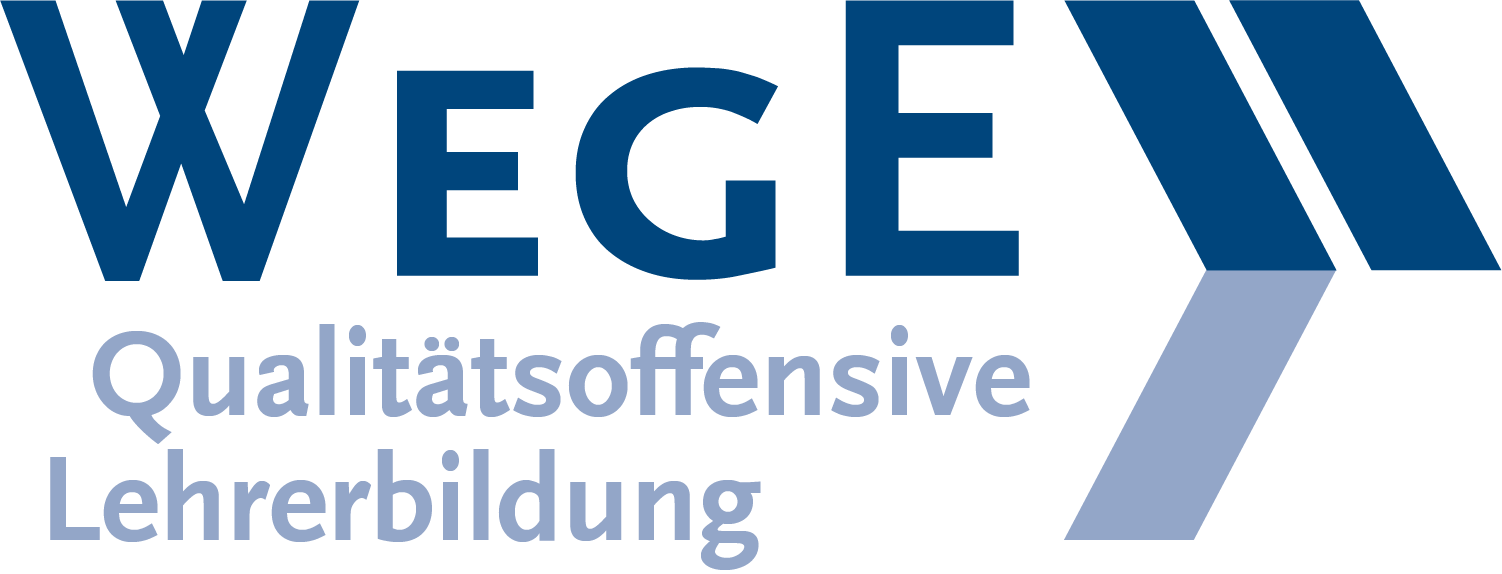The University of Bamberg possesses a high degree of empirical research expertise on education, as well as already existing collaborations between and within academic disciplines, subject-related, and general educational sciences in regard to teacher training. These resources will in future be utilised more for profiling and further development of educational training with coordinated curricula. Thus, the focal point of the ‘Network of Educational Sciences’ (‘Bildungswissenschaft im Verbund’ (BilVer)) is the interdisciplinary connection and coordination between the various academic disciplines, the increased instructional focus on career options and school work, and the formats of teaching, learning, and examination to be expanded in its wake. The project ties in to the national and international discussion regarding teacher education and, with this background, follows an educational concept based on research.
In the first phase of the project, we wish to concentrate on educational training within the three subjects from the module in this area, obligatory to the teacher and Vocational Education study programmes. The subject fields are General Pedagogy, School Pedagogy and Psychology.
In the second phase, interdisciplinary and cooperative connections to the compulsory areas from the educational sciences shall be drawn. These entail especially the social sciences within sociology, political science, and ethnology, but also extend to other study programmes, such as Primary School Pedagogy and Didactics, Vocational Education, Social Pedagogy, Business Education, and the Office for Internships.
In future, we wish to more strongly align the educational areas of the Bamberg teacher training programmes with the following aims:
Increase communication and coordination: We are working on ways to be more cognisant of the various disciplines within study areas concerned with education.
Optimise coordination between the different areas of study concerned with educational training: We will assess which areas should be jointly operated and which should be organised within the framework of the individual disciplines.
Increase job relevance: Recent evidence-based research has shown aspects particularly important to teaching. We wish to expand these aspects, while discarding others. In order to improve students‘ professional expertise, content relevant to later jobs and school life will receive priority, aided by evidence-based research findings.
Expand innovative learning, teaching, and examination formats: In future, we wish to increasingly work with examples, concepts of exploratory learning, teaching simulations, and other didactically innovative teaching formats. Good didactic arrangements should also be reflected in university teaching. The requirements at schools in regard to teaching and examinations, oriented around competence, necessitate equivalences in teacher education.
Literature
Kunter, M., Baumert, J., Blum, W., Klusmann, U., Krauss, S., & Neubrand, M. (Hrsg.) (2011). Professionelle Kompetenz von Lehrkräften. Ergebnisse des Forschungsprogramms COACTIV. Münster: Waxmann.
Seidel, T., & Stürmer, K. (2014). Modeling the structure of professional vision in pre-service teachers. American Educational Research Journal, 20(10), 1-32.
Kunter, M., Kunina-Habenicht, O., Baumert, J., Dicke, Th., Holzberger, D., Lohse-Bossenz, H., Leutner, D., Schulze-Stocker, F., & Terhart, E. (2016). Bildungswissenschaftliches Wissen und professionelle Kompetenz in der Lehramtsausbildung – Ergebnisse des Projekts BilWiss. In C. Gräsel, & K. Trempler (Hrsg.), Entwicklung von Professionalität pädagogischen Personals. Interdisziplinäre Betrachtungen, Befunde und Perspektiven. Wiesbaden: Springer-Online.
Sekretariat der Ständigen Konferenz der Kultusminister der Länder in der Bundesrepublik Deutschland. (2004). Standards für die Lehrerbildung: Bildungswissenschaften. Beschluss der Kultusministerkonferenz vom 16.12.2004.
As part of the ‘Qualitätsoffensive Lehrerbildung’ (Quality Campaign for Teacher Education), a joint programme by the federal government and the federal states, WegE is funded by the Federal Ministry of Education and Research.
